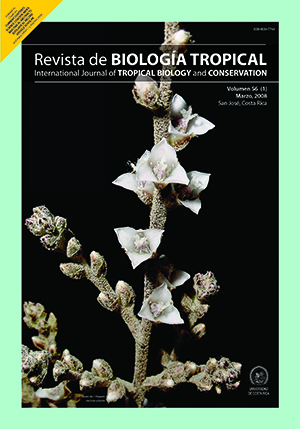Abstract
Using collection specimens, we measured the density and wing area of trichomes in 37 species of the bromeliad genus Tillandsia, specifically the abaxial proximal, abaxial distal, adaxial proximal and adaxial distal parts of the leaf. The product of the trichome wing area by the number of trichomes (means) produced a pure number (T) that was correlated to ecological features. The correlation was positive with respect to arid environments (xeric Tillands) and negative with respect to humid environments (mesic Tillands). Bulbous, and particularly myrmecophytic species and species with tanks, represented particular categories. Other intermediate types were identified based on the T number, totalling five ecological types. In comparison with other systems of ecological typification for Tillands and other Bromeliaceae, the present system offers measurable data whose analysis is reproducible.##plugins.facebook.comentarios##

This work is licensed under a Creative Commons Attribution 4.0 International License.
Copyright (c) 2008 Revista de Biología Tropical
Downloads
Download data is not yet available.






